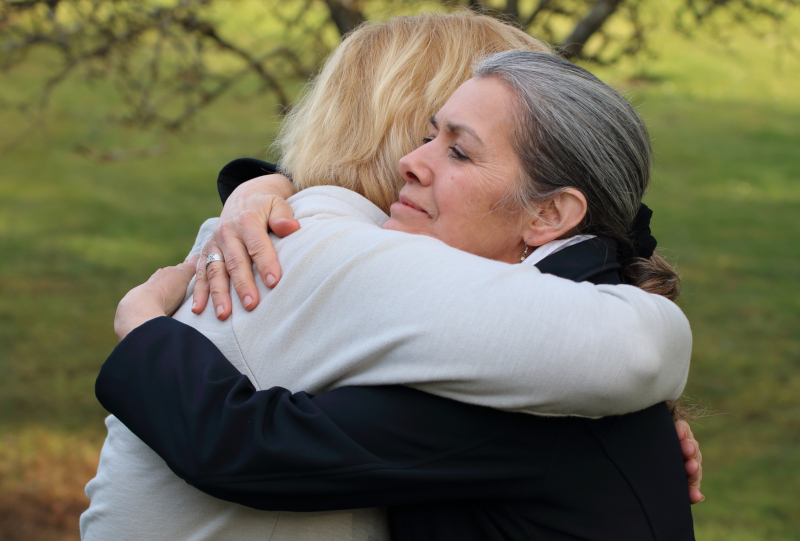Leadership Lessons From St. James of Jerusalem
We are celebrating the Feast Day of St. James of Jerusalem, making the distinction between this James and James, the brother of Jesus, whom tradition says wrote the book we know as James. The life and death—as a martyr—of this James gives us reason to consider the true price of being a Christian.
Leadership Has a Price
James was literally killed on a whim, but it was a whim we can almost understand. You see, at this time, there was a great famine in the land. And just as we tend to blame our leaders for the problems our country has today, people blamed the king for the famine. So King Herod did what other tyrants have done throughout history. He looked for the least popular group, which in this case was Christians, and used them as his scapegoat.
And that’s exactly what happened here. James, one of the key leaders of the church in Jerusalem, wound up being martyred. And the Scripture says, “Herod saw that it pleased the Jewish people” (Acts 12:3a). Anyone who considers being a leader must recognize the possibility that you may have to pay a serious price for your leadership.
Leadership Comes With Loss
The untimely evil of what happened to James gives cause for consideration, too. Have you ever lost someone you loved in what you might consider an untimely way? Many of us have. And when this happens, it’s so easy to think, “What is going on? What have I done? Why has this happened to the person I care about?”
And this will happen because, you see, we live in a world that is not entirely redeemed. It’s going to be, but it hasn’t happened yet. And, in fact, nothing in the New Testament guarantees our protection from the untimely death, illness or loss of someone we love. Quite the opposite, in fact. And so James loses his life on the whim of a selfish tyrant who was somehow trying to save his reputation.
As leaders, particularly Christian leaders, I think we sometimes feel we must avoid mourning altogether. Rob Moll wrote a beautiful book called “The Art of Dying,” and he said this: “Christians sometimes impose a kind of ban on grief and mourning, using the hope of heaven as an excuse to avoid someone else’s deep pain over this loss. We all need to die well, at whatever age we are.”
Perhaps “dying well” is the capacity to be able to know that while I have a promise that all will be well, it is actually beyond the grave when that promise will be entirely fulfilled. As leaders, we are called to live with a level of sacrifice, to be the kind of courageous people who don’t run the other way when the unexplainably wicked happens. Instead, we’re the people who show up right in the midst of these difficulties and try our best not to be Job’s comforters, the ones who tell you what you must have been doing wrong or say things like, “There, there. You’re good to go to heaven anyway.”
Leadership Stands and Serves
But instead, God gives us the capacity to sit with someone as they are, even in the midst of the difficulty, the unknown, unanswered questions, the pain it creates, the way it causes other pain to surface in that deep place of grief, and not bail. That’s a tough place to be, but it comes with a kind of inner confidence that says, “I’m willing to stand in the place of other people’s pain, because I know that God will make all things well. And that hasn’t happened yet.”
Knowing that gives us the capacity to be able to walk alongside people with tender care. All of us, not just those who have suffered profound loss, have places inside us of unresolved difficulty, questions that don’t yet have a final answer, things inside us that we wish weren’t there at all. Places of deep difficulty. Sin. On one level, we have a kind of internal self-awareness that says, “Oh yes, that’s what’s surfacing over there, and it’s in me, too. I’m just not facing that at the moment.”
And that’s a part of the companionship God gives us. In fact, I think it’s part of what the Bible means when it talks about “the fellowship of his suffering,” which we all share, regardless of how far along we are in our faith. And this gives us the capacity to be the right kind of servant to those in need.
These are really the lessons of St. James, the first of the 12 to be martyred, and not a sinner who somehow “deserved” it. James was literally “ground under” by Herod’s wickedness. And how do we stand in the face of such evil? Because we know that in the end, Herod gets his due.
Just not yet.
Which leadership lesson most speaks to you? Share this blog and your response on Twitter. Please include my username, @revgregbrewer.
(This post is an adaption of Bishop Brewer’s sermon on July 25, 2019, in the Bishop’s Oratory of the Diocesan Office, Orlando).
Unless otherwise noted, Scripture quotations are from the New Revised Standard Version Bible, copyright © 1989 the Division of Christian Education of the National Council of the Churches of Christ in the United States of America. Used by permission. All rights reserved.

